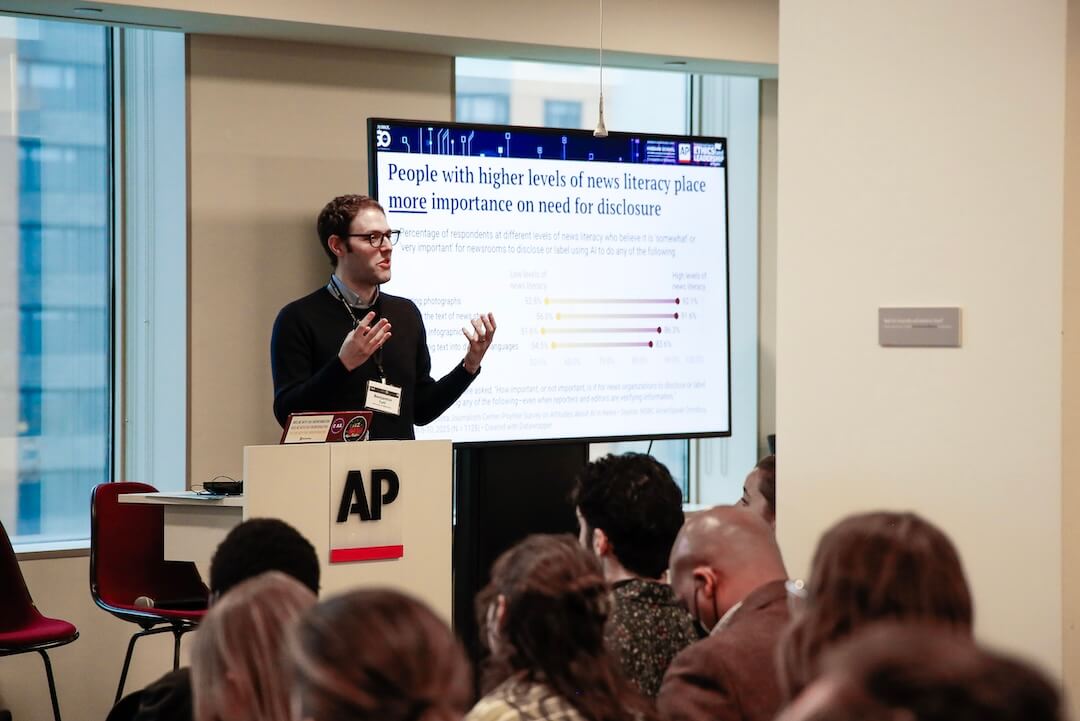Complaining about riding the bus is sport in San Francisco. So when we started Muni Diaries, a website documenting stories that happen on public transit, there was a high chance that our website could devolve into a cesspool of whining and bigoted rants.
But the exact opposite happened: For the last three-and-a-half years, our readers have contributed the majority of the content on our site, and we’ve turned a significant slice of the transit-riding population in San Francisco into our contributor base.
Our readers have helped us break news, be the first to tweet about accidents, and provide other useful information to San Franciscans who depend on public transit.
So how do you get the best from your readers? And how do you cultivate a focused audience that consistently shares ideas and contributes to conversations? Here are some tips we’ve learned along the way.
Listen to what people want to talk about.
The most lively conversation might not be about the newest topic at City Hall. Pay attention to Facebook comments, tweets and comments on stories to get a better sense of what people want to talk about. We’ve found that buzz from readers is one of the best indicators of a trend story.
This is especially true if you write about a topic that touches on your city’s everyday life. For example, when we started seeing tweets and questions in our comments section about the distribution of fare inspectors in San Francisco, we realized that this was a concern for many San Franciscans. In a post about the fairness of fare inspection, commenters weighed in on where they see fare inspectors and why they think fare inspectors target certain lines.
Twitter can be a great way to guide conversation and understand buzz. When the San Francisco Police Department decided to borrow Muni buses to shuttle police officers to the OccupySF encampment, we saw hilarious comments on Twitter. We later turned tweets into one of the most highly-trafficked posts of that month.
Within the conversations on your news site, there are tips about news, public-safety, or cultural trends. Conversations are happening increasingly online, and it pays to listen to what your readers have to say.
Respect your audience
Though we do contact government officials for stories, we always try to be accessible to the community, the greatest source of stories and tips. There are a few ways to reward your audience:
- Always credit readers for tips, Facebook comments and submissions.
- Give your readers a shoutout as often as possible. On Muni Diaries, readers who submit stories have their names displayed in the byline, though stories are always vetted and edited.
- Ask readers how to attribute to them or link to their personal websites or projects.
- Promote stories submitted by your audience to other publications.
Do the heavy lifting yourself.
Your readers are not your staff. You can get the best content from your readers by taking tips and stories from them and doing the heavy lifting yourself. On Muni Diaries, we don’t expect our readers to do the type of reporting that paid journalists do. We don’t assign stories, provide journalism training or otherwise expect readers to do what journalists get paid to do.
Instead, we provide a forum for readers to talk about their transit-riding experience, and curate the conversation to choose stories and tips that would be interesting to a wider audience. Though most blog posts are submitted by readers, we research and verify the stories, ask more questions about the stories, then write headlines, choose photos and even copy edit.
Be available and responsive to conversations.
Conversations happen if you cultivate them. Participate in conversations in your comments section, Facebook page, and on Twitter. You can even turn notable comments into stories. For example, when we posted about the inaugural party for Muni in the 1980s, a reader commented that he was actually there at the party and sent us videos of the event.
Countless stories have been spawned from our comments section. Transforming great comments into stories makes your readers feel heard and encourages them to continue participating in conversations on your website.
List your email address prominently on your website so that readers can get in touch with you easily via email, Twitter, or Facebook.
By getting a community talking, you can build a website that features content people can relate to. The idea of “citizen journalism” has changed in the age of social media. Rather than turning citizens into unpaid journalists, you can get the best out of your readers by creating a space where conversations lead to ideas and stories.






Comments